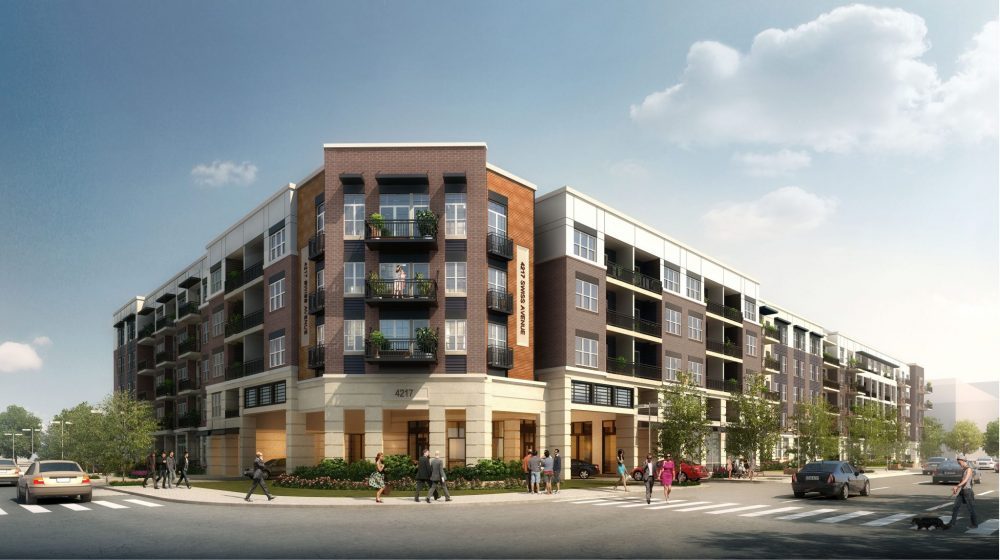The plans for a five-story apartment building on Swiss at Peak violate the standards for that area, neighbors say.
They’re taking the developer, Encore Multi-Family LLC, to the board of adjustments this month to contest it. They say the development would loom over an 1886 historical home.
At the heart of the dispute is a bit of city-planning esoterica called “residential proximity slope.”
Residential proximity slope, or RPS, is a formula for how multi-story buildings are allowed to relate to one- or two-story buildings. It is a ratio between vertical and horizontal distances.
RPS provides a way to allow dense, multi-story buildings adjacent to single-family neighborhoods while preventing the new building from overshadowing residences.
What Peak’s Addition neighbors want, basically, is for the front of the building to be tiered back. So instead of a five-story block facing Peak, there would be two stories at the street level and then tiered back to five.
“Neighborhoods get the reputation of being anti-development but that’s not the case here,” says Wendy Millsap of the Peak’s Addition Neighborhood Association.
They welcome development, she says, but they want development that’s sensitive to the neighborhood and follows the proximity slope guidelines.
The association states in a media release: “The 253-unit, complex will overshadow one of the most significant historic structures in East Dallas – the last remaining large country estate home, which was built in 1886 and protected under the historic ordinance.”
Their challenge asserts that the district where the project lies (PD 298 if you’re interested) requires residential proximity slope. Neighbors went so far as to create a website to explain RPS and their position on this project.
The developer, Encore, had several lawyers and Masterplan Consulting review the property’s zoning and determined that residential proximity slope is not required there.
“There are portions of PD 298 that provide for proximity-slope limitations, and we were very much aware of that,” says company president Brad Miller. “But the RPS doesn’t apply to our property.”
The company already has spent $4 million, including purchase of the land, Miller says, and it’s already under construction.
“We think their complaint, unfortunately for them, has no merit, and we will assert that in the hearing,” he says.
The case goes before the board of adjustments Feb. 21. If the board should decide agains Encore, Miller says, they will “seek relief however we can.”







